Contact Us
Table of Contents
Search Site
Google listing of all pages on this website
Site Map
Toby
Johnson's Facebook page
Toby
Johnson's YouTube channel
Toby Johnson on Wikipedia
Toby
Johnson Amazon Author Page

Secure site at
https://tobyjohnson.com
Also on this
website:
As an Amazon Associate
I earn from qualifying purchases.
Toby
Johnson's books:
Toby's books are available as ebooks from
smashwords.com, the Apple iBookstore, etc.

FINDING
YOUR OWN TRUE MYTH: What I Learned
from Joseph Campbell: The
Myth
of the
Great Secret
III

GAY
SPIRITUALITY:
The Role of Gay Identity in the Transformation of Human Consciousness

GAY PERSPECTIVE:
Things Our Homosexuality Tells Us about the Nature of God and the
Universe

SECRET MATTER, a sci-fi novel with
wonderful "aliens" with an
Afterword by Mark Jordan

GETTING
LIFE IN PERSPECTIVE:
A
Fantastical Gay Romance set in two different time periods

THE FOURTH QUILL, a
novel about attitudinal healing and the problem of evil
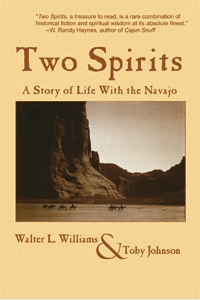
TWO SPIRITS: A Story of Life with
the
Navajo, a collaboration with Walter L. Williams

CHARMED
LIVES: Spinning Straw into
Gold: GaySpirit in Storytelling, a collaboration with
Steve Berman and some 30 other writers

THE MYTH OF THE GREAT
SECRET:
An
Appreciation of Joseph Campbell

IN SEARCH OF GOD IN THE
SEXUAL UNDERWORLD: A Mystical Journey
Unpublished manuscripts
About ordering
Books on
Gay Spirituality:
White
Crane Gay Spirituality Series


Articles
and Excerpts:
Review of Samuel
Avery's The
Dimensional Structure of Consciousness
Funny
Coincidence: "Aliens Settle in San Francisco"
About Liberty Books, the
Lesbian/Gay Bookstore for Austin, 1986-1996
The Simple Answer to the Gay Marriage Debate
A
Bifurcation of Gay Spirituality
Why gay people should NOT Marry
The Scriptural Basis for
Same Sex Marriage
Toby and Kip Get Married
Wedding Cake Liberation
Gay Marriage in Texas
What's ironic
Shame on the American People
The "highest form of love"

Gay Consciousness
Why homosexuality is a sin
The cause of homosexuality
The
origins of homophobia
Q&A
about Jungian ideas in gay consciousness
What
is homosexuality?
What
is Gay Spirituality?
My three
messages
What
Jesus said about Gay
Rights
Queering
religion
Common
Experiences Unique to Gay
Men
Is there a "uniquely gay
perspective"?
The
purpose of homosexuality
Interview on the Nature of
Homosexuality
What the Bible Says about
Homosexuality
Mesosexual
Ideal for Straight Men
Varieties
of Gay Spirituality
Waves
of Gay Liberation Activity
The Gay Succession
Wouldn’t You Like to Be Uranian?
The Reincarnation of
Edward Carpenter
Why Gay Spirituality: Spirituality
as Artistic Medium
Easton Mountain Retreat Center
Andrew Harvey &
Spiritual Activism
The Mysticism of
Andrew Harvey
The
upsidedown book on MSNBC

Enlightenment
"It's
Always About You"
The myth of the Bodhisattva
Avalokitesvara
Joseph
Campbell's description of
Avalokiteshvara
You're
Not A Wave
Joseph Campbell Talks
about Aging
What is Enlightenment?
What is reincarnation?
How many lifetimes in an
ego?
Emptiness & Religious Ideas
Experiencing experiencing experiencing
Going into the Light
Meditations for a Funeral
Meditation Practice
The way to get to heaven
Buddha's father was right
What Anatman means
Advice to Travelers to India
& Nepal
The Danda Nata
& goddess Kalika
Nate Berkus is a bodhisattva
John Boswell was Immanuel Kant
Cutting
edge realization
The Myth of the
Wanderer
Change: Source of
Suffering & of Bliss
World Navel
What the Vows Really
Mean
Manifesting
from the Subtle Realms
The Three-layer
Cake
& the Multiverse
The
est Training and Personal Intention
Effective
Dreaming in Ursula LeGuin's The Lathe of Heaven

Gay
Spirituality
Curious
Bodies
What
Toby Johnson Believes
The
Joseph Campbell Connection
The
Mann Ranch (& Rich Gabrielson)
Campbell
& The Pre/Trans Fallacy
The
Two Loves
The
Nature of Religion
What's true about
Religion
Being
Gay is a Blessing
Drawing Long Straws
Freedom
of Religion

The
Gay Agenda
Gay
Saintliness
Gay
Spiritual Functions
The subtle workings of the spirit
in gay men's lives.
The Sinfulness of
Homosexuality
Proposal
for a study of gay nondualism
Priestly Sexuality
Having a Church to
Leave
Harold Cole on Beauty

Marian Doctrines:
Immaculate Conception & Assumption
Not lashed to the
prayer-post
Monastic or Chaste
Homosexuality
Is It Time to Grow
Up? Confronting
the Aging Process
Notes on Licking
(July, 1984)
Redeem Orlando
Gay Consciousness changing
the
world by Shokti LoveStar
Alexander Renault
interviews Toby
Johnson

Mystical Vision
"The
Evolution of Gay Identity"
"St. John of the
Cross & the Dark Night of
the Soul."
Avalokiteshvara
at the Baths
Eckhart's Eye
Let Me
Tell You a Secret
Religious
Articulations of the
Secret
The
Collective Unconscious
Driving as
Spiritual Practice
Meditation
Historicity
as Myth
Pilgrimage
No
Stealing
Next
Step in Evolution
The
New Myth
The Moulting of the Holy Ghost
Gaia
is a Bodhisattva

The Hero's
Journey
The
Hero's Journey as archetype -- GSV 2016
The Gay Hero Journey
(shortened)
You're
On Your Own
Superheroes

Seeing
Differently
Teenage
Prostitution and the Nature of Evil
Allah
Hu: "God is present here"
Adam
and Steve
The Life is
in the Blood
Gay retirement and the "freelance
monastery"
Seeing with
Different Eyes
Facing
the Edge: AIDS as an occasion for spiritual wisdom
What
are you looking for in a gay science fiction novel?

The Vision
The
mystical experience at the Servites' Castle in Riverside
A Most Remarkable
Synchronicity in
Riverside
The
Great Dance according to C.S.Lewis

The Techniques Of The
World Saviors
Part 1: Brer Rabbit and the
Tar-Baby
Part 2: The
Bodhisattva Avalokiteshvara
Part 3: Jesus
and the Resurrection
Part 4: A
Course in Miracles

The
Secret of the Clear Light
Understanding
the Clear Light
Mobius
Strip
Finding
Your
Tiger Face
How Gay Souls Get Reincarnated

Joseph
Campbell, the Hero's Journey, and the modern Gay Hero-- a five part
presentation on YouTube

About Alien Abduction
In
honor of Sir Arthur C Clarke
Karellen was a homosexual
The
D.A.F.O.D.I.L. Alliance
Intersections
with the movie When We Rise
More
about Gay Mental Health
Psych
Tech Training
Toby
at the California Institute
The
Rainbow Flag
Ideas for gay
mythic stories

People
Kip and Toby,
Activists
Toby's
friend and nicknamesake Toby Marotta.
Harry
Hay, Founder of the gay movement
About Hay and The New Myth
About
Karl
Heinrich Ulrichs, the first
man to really "come out"
About Michael Talbot, gay mystic
About Fr. Bernard Lynch
About Richard Baltzell
About Guy Mannheimer
About David Weyrauch
About
Dennis Paddie
About Ask the Fire
About
Arthur Evans
About
Christopher Larkin
About Mark Thompson
About Sterling Houston
About Michael Stevens
The Alamo Business
Council
Our friend Tom Nash
Second March on
Washington
The
Gay
Spirituality Summit in May 2004 and the "Statement
of Spirituality"

Book
Reviews
Be Done on Earth by Howard
E. Cook
Pay Me What I'm Worth by
Souldancer
The Way Out by Christopher
L Nutter
The Gay Disciple by John Henson
Art That Dares by Kittredge Cherry
Coming Out, Coming Home by Kennth
A. Burr
Extinguishing
the Light by B. Alan Bourgeois
Over Coffee: A conversation
For Gay
Partnership & Conservative Faith by D.a. Thompson
Dark Knowledge
by
Kenneth Low
Janet Planet by
Eleanor
Lerman
The
Kairos by Paul E. Hartman
Wrestling
with Jesus by D.K.Maylor
Kali Rising by Rudolph
Ballentine
The
Missing Myth by Gilles Herrada
The
Secret of the Second Coming by Howard E. Cook
The Scar Letters: A
Novel
by Richard Alther
The
Future is Queer by Labonte & Schimel
Missing Mary
by Charlene Spretnak
Gay
Spirituality 101 by Joe Perez
Cut Hand: A
Nineteeth Century Love Story on the American Frontier by Mark Wildyr
Radiomen
by Eleanor Lerman
Nights
at
Rizzoli by Felice Picano
The Key
to Unlocking the Closet Door by Chelsea Griffo
The Door
of the Heart by Diana Finfrock Farrar
Occam’s
Razor by David Duncan
Grace
and
Demion by Mel White
Gay Men and The New Way Forward by Raymond L.
Rigoglioso
The
Dimensional Stucture of Consciousness by Samuel Avery
The
Manly Pursuit of Desire and Love by Perry Brass
Love
Together: Longtime Male Couples on Healthy Intimacy and Communication
by Tim Clausen
War
Between Materialism and Spiritual by Jean-Michel Bitar
The
Serpent's Gift: Gnostic Reflections on the Study of Religion by
Jeffrey J. Kripal
Esalen:
America and the Religion of No Religion by Jeffrey J. Kripal
The
Invitation to Love by
Darren Pierre
Brain,
Consciousness, and God: A Lonerganian Integration by Daniel A
Helminiak
A
Walk with Four Spiritual Guides by Andrew Harvey
Can Christians Be Saved? by Stephenson & Rhodes
The
Lost Secrets of the Ancient Mystery Schools by Stephenson &
Rhodes
Keys to
Spiritual
Being: Energy Meditation and Synchronization Exercises by Adrian
Ravarour
In
Walt We
Trust by John Marsh
Solomon's
Tantric Song by Rollan McCleary
A Special Illumination by Rollan McCleary
Aelred's
Sin
by Lawrence Scott
Fruit
Basket
by Payam Ghassemlou
Internal
Landscapes by John Ollom
Princes
& Pumpkins by David Hatfield Sparks
Yes by Brad
Boney
Blood of the Goddess by William Schindler
Roads of Excess,
Palaces of
Wisdom by Jeffrey Kripal
Evolving
Dharma by Jay Michaelson
Jesus
in Salome's Lot by Brett W. Gillette
The Man Who Loved Birds by Fenton Johnson
The
Vatican Murders by Lucien Gregoire
"Sex Camp"
by
Brian McNaught
Out
& About with Brewer & Berg
Episode One: Searching for a New Mythology
The
Soul Beneath the Skin by David Nimmons
Out
on
Holy Ground by Donald Boisvert
The
Revotutionary Psychology of Gay-Centeredness by Mitch Walker
Out There
by Perry Brass
The Crucifixion of Hyacinth by Geoff Puterbaugh
The
Silence of Sodom by Mark D Jordan
It's
Never About What It's About by Krandall Kraus and Paul Borja
ReCreations,
edited by Catherine Lake
Gospel: A
Novel
by WIlton Barnhard
Keeping
Faith: A Skeptic’s Journey by Fenton Johnson
Dating the Greek Gods by Brad Gooch
Telling
Truths in Church by Mark D. Jordan
The
Substance of God by Perry Brass
The
Tomcat Chronicles by Jack Nichols
10
Smart
Things Gay Men Can Do to Improve Their Lives by Joe Kort
Jesus and the Shamanic Tradition of Same Sex Love
by Will Roscoe
The
Third Appearance by Walter Starcke
The Last Hours of Ancient Sunlight by Thom Hartmann
Surviving
and Thriving After a Life-Threatening Diagnosis by Bev Hall
Men,
Homosexuality, and the Gods by Ronald Long
An Interview
with Ron Long
Queering Creole Spiritual Traditons by Randy
Conner & David Sparks
An Interview with
Randy Conner
Pain,
Sex
and Time by Gerald Heard
Sex
and the Sacred by Daniel Helminiak
Blessing Same-Sex Unions by Mark Jordan
Rising Up
by
Joe Perez
Soulfully
Gay
by Joe Perez
That
Undeniable Longing by Mark Tedesco
Vintage: A
Ghost
Story by
Steve Berman
Wisdom
for the Soul by Larry Chang
MM4M a DVD
by Bruce Grether
Double
Cross
by David Ranan
The
Transcended Christian by Daniel Helminiak
Jesus
in Love by Kittredge Cherry
In
the Eye of the Storm by Gene Robinson
The
Starry Dynamo by Sven Davisson
Life
in
Paradox by Fr Paul Murray
Spirituality for Our Global Community by Daniel
Helminiak
Gay & Healthy in a Sick Society by Robert A.
Minor
Coming Out: Irish Gay Experiences by Glen O'Brien
Queering
Christ
by Robert Goss
Skipping
Towards Gomorrah by Dan Savage
The
Flesh of the Word by Richard A Rosato
Catland by
David Garrett Izzo
Tantra
for Gay Men by Bruce Anderson
Yoga
&
the Path of the Urban Mystic by Darren Main
Simple
Grace
by Malcolm Boyd
Seventy
Times Seven by Salvatore Sapienza
What
Does "Queer" Mean Anyway? by Chris Bartlett
Critique of Patriarchal Reasoning by Arthur Evans
Gift
of
the Soul by Dale Colclasure & David Jensen
Legend of the Raibow Warriors by Steven McFadden
The
Liar's
Prayer by Gregory Flood
Lovely
are the Messengers by Daniel Plasman
The Human Core of Spirituality by Daniel Helminiak
3001:
The Final Odyssey by Arthur C. Clarke
Religion and the Human Sciences by Daniel Helminiak
Only
the
Good Parts by Daniel Curzon
Four
Short
Reviews of Books with a Message
Life
Interrupted by Michael Parise
Confessions of a Murdered Pope by Lucien Gregoire
The
Stargazer's Embassy by Eleanor Lerman
Conscious
Living, Conscious Aging by Ron Pevny
Footprints Through the Desert by Joshua Kauffman
True
Religion by J.L. Weinberg
The Mediterranean Universe by John Newmeyer
Everything
is God by Jay Michaelson
Reflection
by Dennis Merritt
Everywhere
Home by Fenton Johnson
Hard Lesson by James
Gaston
God
vs Gay?
by Jay Michaelson
The
Gate
of Tears: Sadness and the Spiritual Path by Jay Michaelson
Roxie
&
Fred by Richard Alther
Not
the Son He Expected by Tim Clausen
The
9 Realities of Stardust by Bruce P. Grether
The
Afterlife Revolution by Anne & Whitley Strieber
AIDS
Shaman:
Queer Spirit Awakening by Shokti Lovestar
Facing the Truth of Your Life by Merle Yost
The
Super Natural by Whitley Strieber & Jeffrey J Kripal
Secret
Body by
Jeffrey J Kripal
In
Hitler's
House by Jonathan Lane
Walking on Glory by Edward Swift
The
Paradox
of Porn by Don Shewey
Is Heaven for Real? by Lucien Gregoire
Enigma by Lloyd Meeker
Scissors,
Paper, Rock by Fenton Johnson
Toby
Johnson's
Books on Gay Men's Spiritualities:

Gay Perspective
Things Our [Homo]sexuality
Tells Us
about the
Nature of God and
the Universe
Gay
Perspective is available as an audiobook narrated
by Matthew Whitfield. Click
here

Gay Spirituality
Gay Identity and
the Transformation of
Human Consciousness
Gay
Spirituality is now
available as an audiobook, beautifully narrated by John Sipple. Click here

Charmed
Lives: Gay Spirit in Storytelling
edited by
Toby Johnson
& Steve Berman

Secret
Matter
Lammy Award Winner for Gay
Science Fiction
updated

Getting Life in
Perspective
A Fantastical Romance
Getting
Life in Perspective is available as an
audiobook narrated by Alex Beckham. Click
here

The Fourth Quill
originally published
as
PLAGUE
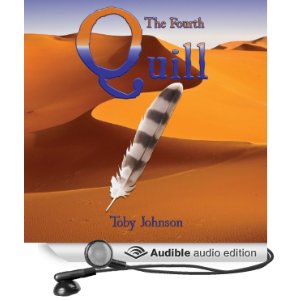
The Fourth Quill is
available
as an audiobook, narrated by Jimmie
Moreland. Click here

Two Spirits: A Story of
Life
with the Navajo
with Walter L. Williams
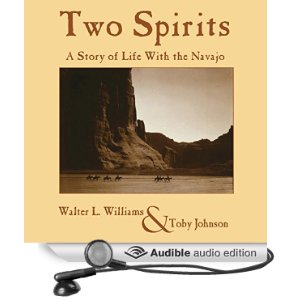 Two
Spirits is available as an
audiobook narrated by Arthur Raymond. Click
here Two
Spirits is available as an
audiobook narrated by Arthur Raymond. Click
here

Finding
Your Own True Myth: What I Learned from Joseph
Campbell
The
Myth
of the
Great Secret III

In Search of God in the Sexual Underworld

The Myth of the Great
Secret: An Appreciation of Joseph Campbell.
This
was the second edition of this book.

Toby Johnson's
titles are
available in other ebook formats from Smashwords.
|
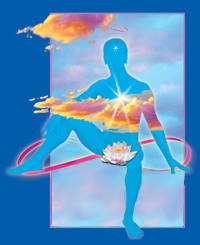 N.b.
Throughout this page and elsewhere, I use the term "spirituality" to
mean a set of themes, ideas, and practices that appeal to particular
types of people and show direction and give solace, meaning and joy.
"Spiritualities," in this sense, are like leitmotifs, they provide
the content for what we say to ourselves in our minds as we explain our
lives to ourselves. N.b.
Throughout this page and elsewhere, I use the term "spirituality" to
mean a set of themes, ideas, and practices that appeal to particular
types of people and show direction and give solace, meaning and joy.
"Spiritualities," in this sense, are like leitmotifs, they provide
the content for what we say to ourselves in our minds as we explain our
lives to ourselves.
For example, one can speak of a Jesuit spirituality, based on a model
of military life; a Franciscan spirituality, based on love of nature
and simplicity; a husbandry or hunter's spirituality, based on killing
animals to provide necessary food; a vegan spirituality, based on
respect for all sentient lives. Women's spiritualities, for instance,
include lunar references to draw in the female experience of
menstruation and the monthly passage of blood. Men's spiritualities
include
doing and working and sexual imagery to draw in the male experience of
needing to jettison reproductive fluid daily. Heterosexual/married
spiritualities include notions of complementarity and completion and
balance of binary forces as well as valorization of reproduction,
parenting, and domesticity and stability. So similarly, gay/queer
spiritualities include valorization of
being outsiders, explanations of sex and pleasure beyond reproductive
imperatives, the beauty and symmetry of sames, the balancing of
polarities within self, the call to adventure
and risk, free of parental responsibilities, following the life of the
wanderer
and vagabond. Bisexual spiritualities,
the freedom to choose and to change and to live beyond excluding
alternatives; and trans* spiritualities, the
quest for authentic experience of self and the power of will to change
the status quo. These are not exclusive of one another, nor in
competition with one another. Such spiritualities differ from person to
person the same way as favorite songs or meaningful lines of poetry or
sacred scripture. Some people like John 3:15, some the 23rd Psalm,
others Walt Whitman's Song of Myself.
All spiritualities aim at
giving meaning to life and expanding consciousness beyond self for the
sake of happiness and the continued evolution of human consciousness
itself. Human life is about exploring consciousness. The great
religious, mythical and spiritual traditions provide language and
potent symbols, metaphors and imagery for that exploration. Everyone of
us is
a hero on a quest for our True Self.

The Hero's Journey
Gay Spirit Visions 2016 Presentation
by Toby Johnson
Everyone of
us is
a hero on a quest for our True Self.
Heroes need to be sung, so I'll name some of my heroes.
It's important we recognize each other's contributions.
The Hero’s Journey is a
pattern in the collective consciousness. In fact, maybe it’s the main
pattern, what Joseph Campbell called the "monomyth."
The
point of understanding this is to feel alive in the great web of life.
"Spirituality" is about the larger context, the Big Picture.
I am going to talk about the
concept of the Hero's Journey, about a
specific "Gay Hero Journey" that shows up in individual lives AND also
in the history of the movement, and I'm going to suggest how to
understand all this as a "spiritual quest" for a kind of Enlightenment
that
arises from the consciousness created by being gay, queer, LGBTQIA+.
Gay Spirit Visions 2016
Superheroes
Here's the description of GSV from the
1990 application brochure.
There are lots of new words and new
connotations in the umbrella
LGBTQIA+. They exist today because of the exploring and creating that
was going on in 1990. They don't have to be competitive or
confrontational.
"To explore and create their spiritual
destiny on an awakening planet" IS the Hero Journey.
The pattern is: start, rise a little, fall
a little, run into
obstacles, overcome them, rise a little
more, fall more, be brave, overcome fear and
resistance, have a great
adventure and success, discover a secret or find a treasure, then
relax, and come home bringing boons.
That’s the story of Dorothy in the Wonderful Land of Oz.
It's the story hunters have told around the fire when they come in from
the
hunt and warriors from the battle—and this has been going on a
hundred-and-fifty-thousand years.
It’s
the pattern of human sexual arousal. Seduction, overcoming obstacles,
beginning foreplay, going into the altered state of passion,
intromission,
rising, holding back, rising, holding back, rising,
rising, release, gradual decline, withdrawal, afterglow.
During any specific episode in life, it describes how
we face events and resolve problems.
It's Elizabeth Kübler-Ross's Five Stages of Grief: Denial, Bargaining,
Anger, Depression, Acceptance.
Just like with the stages of grief, it helps to understand that you're
going through a process.
And over a lifetime, it appears as the stages of psychological and
personality development and maturation in each person’s life.
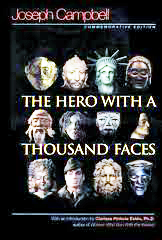
And, of course, it is
the basic pattern for all stories—from fairy
tales to great literary novels, folk stories to TV and movie dramas.
Every episode of every TV show—from comedy to cop thriller—is
structured by a plot that follows what Scott Meredith called “the plot
skeleton” and Joseph Campbell "the hero’s journey."
And, as Joseph Campbell specifically observed in his masterwork The Hero with a Thousand Faces, it
is the basis of all religion and myth—all saviors, gods and cosmogonies.
Joseph Campbell
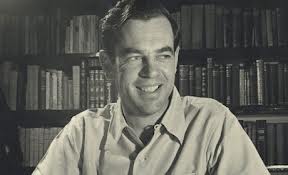
Some of you
may know that I
only
partly tongue-in-cheek
fancy myself “Joseph Campbell’s apostle to the gay community.” It isn’t
so much
Joe Campbell in particular that I want to
champion, though he was, in fact, a
wonderful fellow, but the stance of understanding religion and ultimate
truth
from a perspective over and above. I associate all this way of thinking
with
Campbell because he was my personal entry into it.
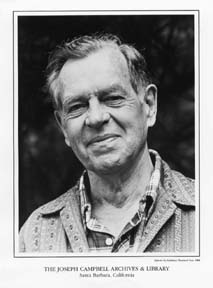
By happy chance, I got Joseph Campbell himself as the Wise Old Man of
my own personal hero journey. I was part of the team that worked at
many of his appearances in Northern California throughout the 1970s,
and I carried on a correspondence with him in thoughtful, mostly
handwritten, letters for some ten years.
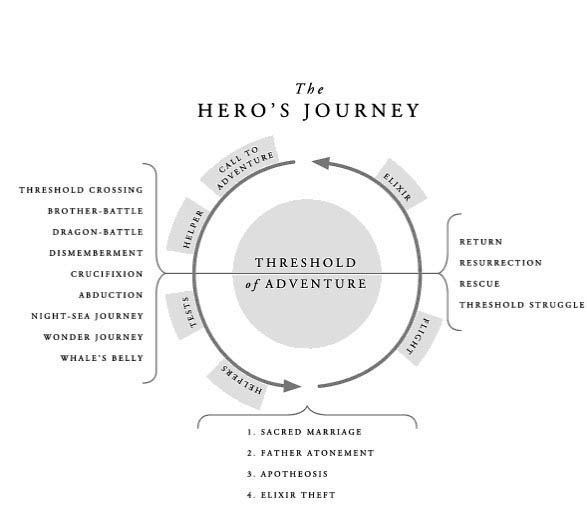
The
mythological
hero, setting forth from his
common day hut or castle, is lured, carried away, or else voluntarily
proceeds, to the threshold of adventure. There he encounters a shadow
presence that guards the passage. The hero may defeat or conciliate
this power and go alive into the kingdom of the dark (brother-battle,
dragon-battle; offering, charm), or be slain
by the opponent and
descend in death (dismemberment, crucifixion).
Beyond the threshold,
then, the hero journeys through a world of unfamiliar yet strangely
intimate forces, some of which severely threaten him (tests),
some of
which give magical aid (helpers).
When he arrives at the nadir of the
mythological round, he undergoes a supreme ordeal and gains his reward.
The triumph may be represented as the hero's sexual union with the
goddess mother of the world (sacred marriage),
his recognition by the
father-creator (father atonement),
his own divinization (apotheosis),
or again—if the powers have remained unfriendly to him his theft of the
boon he came to gain (bride-theft,
fire-theft); intrinsically it is an
expansion of consciousness and therewith of being (illumination,
transfiguration, freedom). The final work is
that of the return. If the
powers have blessed the hero, he now sets forth under their protection (emissary);
if not, he flees and is pursued (transformation
flight,
obstacle flight). At the return threshold the
transcendental powers
must remain behind; the hero re-emerges from the kingdom of dread (return,
resurrection). The boon that he brings
restores the world (elixir).
Joseph Campbell, The
Hero with a
Thousand Faces, Part I, Chapter IV, The Keys
This is crucial for
novelists
The Plot Skeleton
from Scott Meredith's Writing to Sell
1. A
recognizable three-dimensional main
character (protagonist/hero), someone with whom the reader
can sympathize
and identify, finds himself confronted at the very beginning of the
story with a
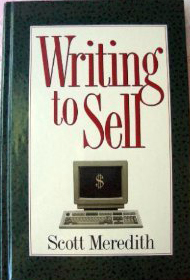
2. Problem, which must be
seen, both by the protagonist
and by the reader, as something
serious, specific, not necessarily
complex, but certainly urgent. As the protagonist attempts
to find the
answer to his problem, he becomes embroiled in a series of
3. Complications, which take the reader deeper
into the
web of conflict caused by the initial difficulty. The protagonist's
situation progressively increases in severity,
matters become darker
and more urgent, until finally the reader arrives at the
4. Climax, the point of absolute crisis. Now
all seems
lost, and the reader is under the impression that the protagonist will
be defeated by his problem. At the last moment, however, he rallies to
arrive at the
5. Solution, in
which the original
problem is overcome.
The protagonist must accomplish his task single-handedly (or as near to
that as circumstances will allow), and the story, in providing a
satisfactory solution, must avoid any major coincidence or the saving
presence of a deus ex machina. (In other words, the reader must
see
that the efforts of the protagonist have led to the successful
resolution of the conflict.)
The Writer's Journey
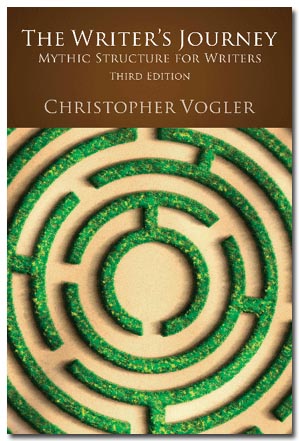
The Hero's Journey—as a "Mythic Structure for Writers"—according to
Christopher Vogler, in The
Writers Journey: Mythic Structure for Writers, 3rd Edition by screenwriter and creative writing
instructor
Christopher Vogler. by screenwriter and creative writing
instructor
Christopher Vogler.
I like the cover of Vogler's book because
it shows a maze-like
labyrinth for the Hero Journey.
The labyrinth is a potent symbol of the
journey inward, and back outward again. You move along a tortuous,
winding path
on which you often do not know whether you are walking forward or
backward
toward or from your goal. In the midst of it, you can feel lost and
alone and helpless.
The Hero Journey, however, is not a maze. The
path is known. Says Campbell:
We have not even to risk the
adventure alone for the
heroes of all time have gone before us. The labyrinth is thoroughly
known ... we have only to follow the thread of the hero path.
And where we had thought to find an abomination we shall
find a
God. And where we had thought to slay another we shall slay ourselves.
Where we had thought to travel outwards we shall come to the center of
our own existence. And where we had thought to be alone we shall be
with all the world.
The Power of Myth, Intro
Credits
I wonder what Campbell meant by
"abomination." The word, of course,
means simply a taboo violation, something in today's teen slang we'd
call "gross" (like picking your nose in public). But it is so often
specifically applied to sexual variance. And its old-time biblical
sound has made it seem especially egregious and offensive, even though
it's just the opposite. Did Joseph Campbell understand that within
homosexual experience, "we shall find a God"? Whatever he meant, we can
certainly affirm that meaning for ourselves.
Gay Hero Journey
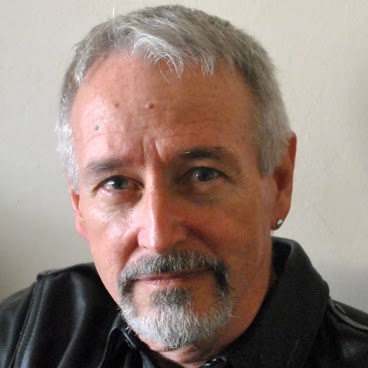
Gay novelist Lloyd A
Meeker has several articles on the Internet about the
Hero's Journey.
Meeker has a
wonderful account
of a "Gay
Hero's Journey" in which he elucidates each of the stages of the Hero
Cycle in the life of a young gay man he names Harold.
It's Harold discovering his
homosexual feelings, struggling with then
understanding them, falling
in love, losing love, finding a
counselor, coming out,
being rejected, being bullied and
humiliated, leaving
home, learning about gay life and gay culture, experimenting
with sex, drinking too much and getting into trouble, being rescued by
a drag queen who shows him the way through the gay world, rejecting
temptations to use sex for drugs and money, taking responsibility for
his own life, buckling down and building a life, volunteering in a
gay community organization, finding true love, reconciling with his
parents and receiving their blessings on his relationship, and becoming
a psychologist and guide himself.
It's a delightful presentation of the
stages, with witty twists on the
age-old mythological themes—like "the Goddess" being the worldly-wise
drag queen with a heart of gold.
And it is also a very familiar and believable story, because Meeker's
account of the gay hero "coming out" journey is so close to what almost
all gay men—and with some variations, lesbians, bisexuals, trans*
people and queers—go through, even when they've grown up with total gay
acceptance. There's always a realization and understanding of being
different, being queer (even in all its glory).
One night [Harold] is reading something by
Joseph Conrad: “Facing it, always facing it, that’s the way to get
through. Face it.”
Every human being, of course, goes through the Hero Cycle of their
whole life and the many mini-cycles that go on in each and virtually
every phase of life. Every adventure, every episode in our lives
follows this pattern.
The Restlessness within and
the Absence of Guides
In two accompanying articles on the
website, Meeker presents what he calls "Essential differences in a gay
Hero's Journey." In Part One, Meeker notes that the real gay person
(and the gay protagonist of a novel) experiences the Separation from
the
World and the Call to Adventure as arising within themselves.

Traditionally, the hero gets "called" by something outside him or
herself: a letter arrives in the mail, or he or she is drafted, or an
inheritance is bestowed, or a mysterious event happens that must be
investigated.
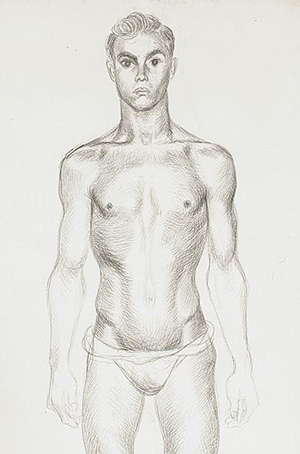 But the gay hero starts with a restlessness
within AND the
restlessness is at the level of sex, love and romance. It is felt in
the
body, as the self. The restlessness may be with his or her own
body—"There is something wrong with me." But the gay hero starts with a restlessness
within AND the
restlessness is at the level of sex, love and romance. It is felt in
the
body, as the self. The restlessness may be with his or her own
body—"There is something wrong with me."
He discovers he is living
in a world in
which he does not quite fit even, especially, in his own
family. He or she may feel self-conscious, worried what
other people think.
Meeker says the gay man's Great Wound is "not
belonging." And in order to belong to something, he must go out to find
it.
His role-models and heroes are not provided by society, culture,
religion and family. The great accomplishments of homosexuals are
mostly hidden. The guides and wayshowers won't come to him; he must
find them.
This is why homosexuals, rightly!, relish
discovering the real histories of people like Alexander the Great,
Michaelangelo, Isaac Newton, Abraham Lincoln, or Greta Garbo, Marlene
Dietrich and Cary Grant and Randolph Scott, etc.
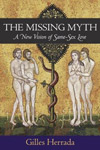
Wonderful book by Gilles Herrada that examines the questions about
genetics and brain development as "causes" of homosexuality. Herrada
also discusses the "absence of myths" about homosexuality in Western
culture.
Shape-shifters and Performers
In Part Two,
Meeker notes that the gay hero "understands the familiar world from a
perspective that is ideally equipped to bring outside-the-box thinking
for change, insight, compassion and creativity. But it takes courage to
do it." Such a gay hero most
likely goes through an experience of being a shape-shifter.
This is
generally not a quality of the traditional hero (though it might be a
special power); indeed, part of being
a male hero was boldly being who you are, the young straight man come
to accomplish his mission, the warrior, the dragon-slayer.
The gay hero, on the other hand,—that is,
most of us gay men as we have figured out how to live this life—learns
to pretend and
to be something he is not; he learns to pass. He can keep secrets.
This skill gives
perspective. You learn how to perform—and to know you are doing it and
to be able to control it.
When Lloyd Meeker, the writing instructor,
writes that the gay hero needs to have shape-shifter skills, he is
giving advice to novelists about how to write the kind of books that
Meeker himself writes. For novels like these—gay genre fiction—is one
of the major ways gay men can find those guides and wayshowers that
aren't acknowledged in the mainstream culture.
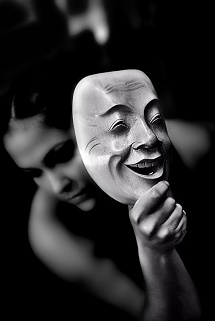
So when Meeker says your
gay character can have shape-shifting skills, he is also presenting the
wisdom about your real life—living through the life course of a gay man
has taught you to understand performance and pretense, yours and other
peoples'.
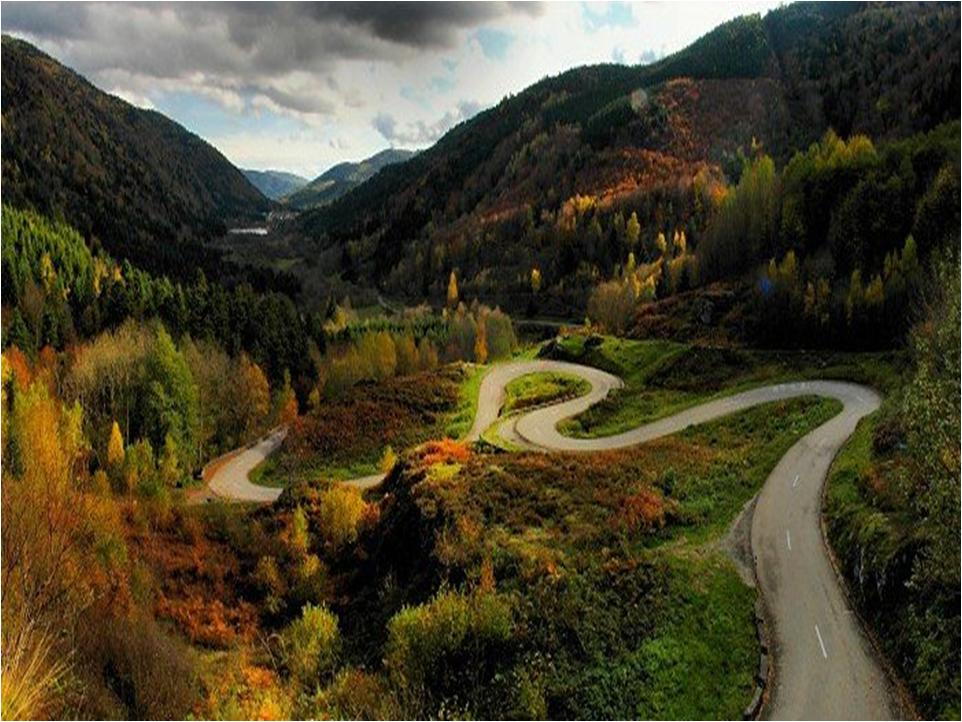
This is a double-edged sword, he says, and the gay
protagonist—that is, the gay person living the "right path"—must find
an
internally congruent, authentic way to belong when he or she returns.
The Long and Winding Road brings you back home.
Gate Keepers, Spiritual
Connectors and Exemplars
In a separate article, titled Letter to a New Generation of Gate Keepers,
Meeker writes to a young generation that has perhaps had an eaiser time
of coming out as gay/queer, but still have a "hero task" of learning to
make
being gay a positive and contributing talent.
This is, of course,
what so-called "Gay Spirituality" is about: recognizing how the natural
traits and talents that go with being an outsider, at least in the
sense of being a member of a minority, and with being freer about sex
and gender roles can be recognized as spiritual gifts and spiritual
practices.
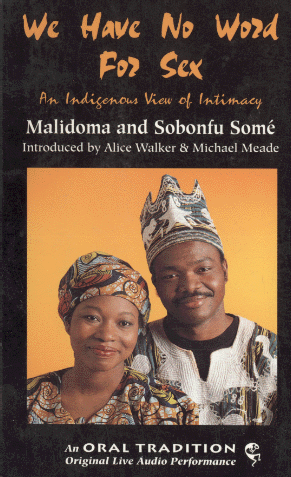
Meeker recounts a little of his own life and hero journey to be the
modern gay man that he now is; in that process he reports of the
African Dagara peoples' notion that homosexuals and gender variant
people were Gate Keepers who had an essential function in the life of
the tribe—of maintaining the living connection between the earth and
the spirit world.
Meeker proposes a series of virtues gay people ought
to learn. In that sense, this third article completes the Hero Cycle by
elucidating the boons the hero returns with.
Lloyd Meeker's advice:
Learn to listen to other people,
cultivate a sense of wonder,
be
delighted,
be open,
practice kindness and friendship.
Our friend Daniel Helminiak offers a very similar formula:
Be
responsible,
Be reasonable,
Be intelligent,
Be attentive.
"You are gay for a reason—the Universe
has entrusted you with stewardship of a certain kind of spiritual
consciousness and power," says Meeker.
Here are the links again:
Essential differences in a gay Hero’s Journey – Part
One
Essential differences in a gay Hero’s Journey — Part
Two
Letter to a New Generation of Gate Keepers
"Reasons We're Here": Ten Functions of Gay People 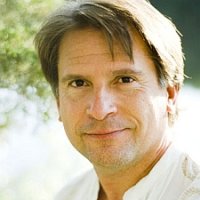
Writer, breath coach and retreat
master Christian de la Huerta identified ten "spiritual functions" of
gay people in his groundbreaking 1999 book Coming Out Spiritually.
1) Catalytic Transformers: Queer
people
often function as catalysts, acting as agents of change, helping to
bring about reform, inciting social movements, and supporting the
advancement of humanity.
2) Outsiders: As outsiders, queer people
help society
to more accurately perceive itself. We reflect diversity and help
society determine its limits and boundaries.
3) Consciousness Scouts: One of the
traditional roles
we have played throughout history has been discovering new paths,
searching out new answers, being “consciousness scouts”—those who go
first to see what lies ahead.
4) Sacred Clowns and Eternal Youth: Queer
people seem
to embody a spirit of humor and youthfulness, qualities that often
bring entertainment, sustenance, and a refreshing sense of joy to the
world.
5) Keepers of Beauty: Throughout history,
queer
people have been responsible for creating, promoting, and supporting
much of the world’s art and beauty, and have done so disproportionately
to our numbers.
6) Caregivers: Gay people have fulfilled
the function
of healers, teachers, and caregivers of all types—from physicians to
massage therapists, from counselors to flight attendants, and in all
forms of the service industry.
7) Mediators: Gay people have often served
as
mediators or “go-betweens,” particularly between the genders as well as
between the physical and spiritual realms.
8) Shamans and Priests: Throughout
history, and
across many cultures, queer people often have assumed roles of
spiritual leadership, and have been honored, respected, and revered for
doing so.
9) The Divine Androgyne: The sacred
writings of
several spiritual traditions include references to the concept of “holy
androgyny”—the marriage within each person of both female and male
aspects of the psyche, which could have evolutionary significance.
10) Gatekeepers: According to some
traditions, gay
people have a “higher vibrational level” and are uniquely suited for
the role of “gatekeepers,” or “guardians of the gateways, with the
spiritual world.”
Christian de la Huerta, Coming
Out Spiritually
The Hero Journey as
Spiritual Quest
Transformation of Self
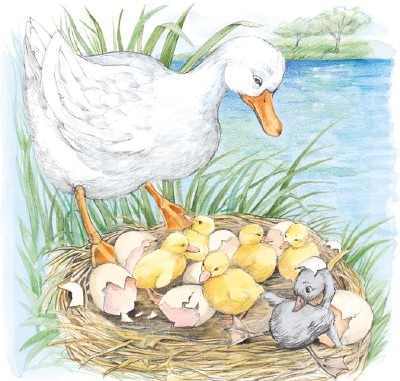
Hans Christian Andersen's fairy tale of
the Ugly Duckling is an allegory about growing up gay. Maybe Andersen
himself even knew and intended that.
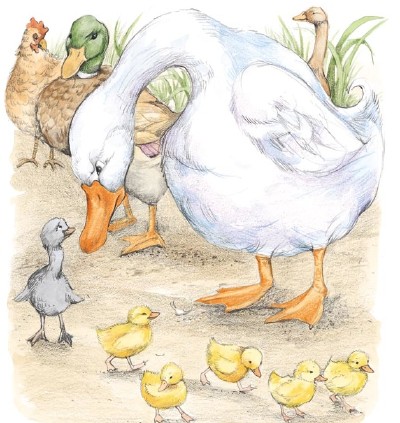
It's a very popular story and applies to lots
of children's
growing up and finding their body changing, but it has specific meaning
for queer people because it's about being "different" from your own
family.
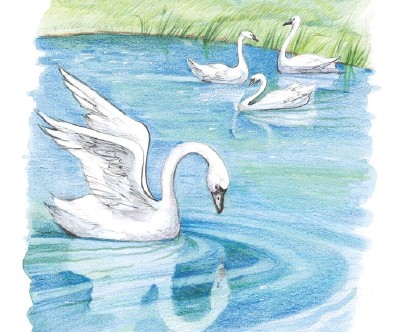
The cygnet raised among ducks,
ashamed and outcast, has to discover his true identity, and when he
does, he is transformed into a swan. The Gay Hero Journey is always
about transformation and finding the True Self.
We have to learn to see our worlds differently
from how we were taught. We have to understand sexuality differently.
We have to perceive and value our body parts—our "private
parts"—differently. We have to transform what we think homosexuality
is. We have to "create something from nothing."
We have to change how we see ourselves. The transformation is about
self and self-concept.
So changing how you see things and
showing other people how to see
things differently is a creative power and task of the gay hero.
Taking or Receiving your True Name
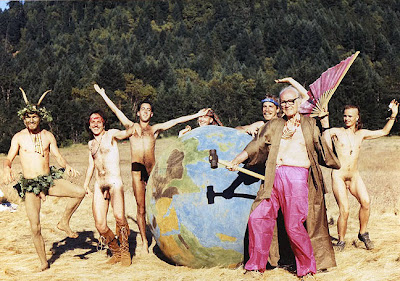
Transformation is signified by changing
one's name. That's why monks and nuns
take religious names, and Radical Faeries take Faerie names and,
indeed, why traditionally women took their husbands' name—to signify
change.
Radical Faerie co-founder Harry Hay,
a popular Marxist teacher in the 1940s,
"queers" the Communist hammer and sickle
at a 1987 gathering in Wolf Creek, Oregon.
Photo by Mark Thompson
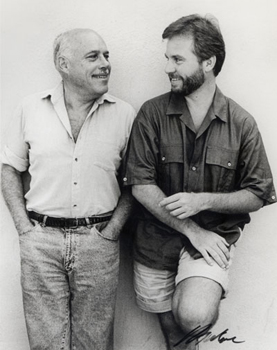
Malcolm Boyd
June 8, 1923 - February 27, 2015
&
Mark Thompson
August 19, 1952 - August 11, 2016
This is also what political signifiers are about. Choosing
to identify
as homosexual or homophile or gay or LGBT or as queer or trans* or bi,
as a rainbow child or proud but unlabelled—all are ways of expressing
self-discovery and change.
Each of these terms, you can see, represent generational
and cultural changes in how sexual and gender variance is understood.
Knowledge at each
stage makes possible and expands knowledge at the next stage. Knowledge
of homosexuality made possible "gay
identity." "Gay"
consciousness made possible the awareness of trans* consciousness.
Layers of identity multiply. Transformation itself results in a
self-fulfilling prophecy of more transformation.
In a way parallel to what Lloyd Meeker called
"shape-shifting" in the
individual sex and gender variant person, the reality and the
terminology of LGBTQIA+ shape-shifts through time. This
parallels the Foucaultian, Queer Theory idea that sexual identities are
constructed rather than essential.
Heroes change their names or get new names as part of the stage of
Initiation. And their world changes.
Discovering a New World
subject-SUBJECT Consciousness
Harry Hay (there in the photo of
the Radical Faeries
above in pink pants with the hammer), founder of the original
Mattachine Society and then much later the Radical Faeries and an
important voice in "gay consciousness," said that a major strength of
homosexual experience is relating to other same-sexed people as
"subjects" like yourself. We can understand each other in a way most
straight people just don't. We share a secret understanding. We
certainly understand each other at the level of
sexuality and desire.
Hay used the terms subject-SUBJECT and subject-object. He said most
heterosexuals treat each other as "objects."
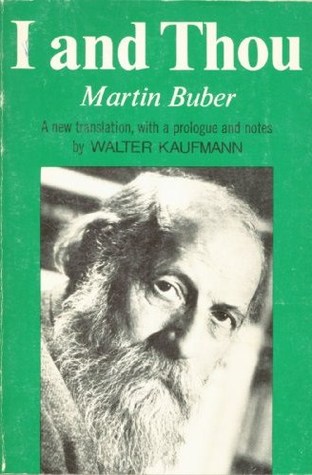
These parallel
the terms created by the Jewish Existentialist philosopher Martin
Buber: I-Thou and I-It. These were popular terms at the time for
describing authentic, compassionate, understanding, respecting
relationships, equal-to-equal, I-Thou.
Hay was intentionally
contrasting homosexual and
heterosexual relationships, wanting to give special dignity and respect
to the homosexual at a time when homosexuals were not believed
to be
able to have interpersonal relationships at all.
Another way of saying that is
that gay/queer people are attracted to
sames, not opposites. There is an understanding and resonance between
men and men and women and women.
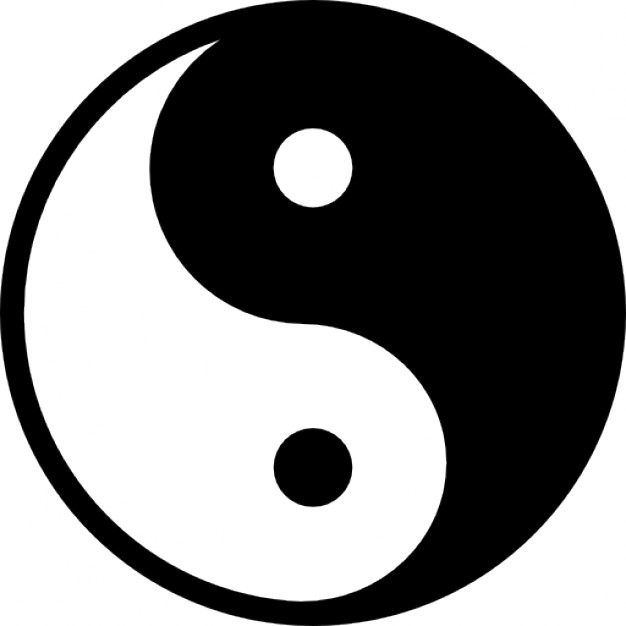
Between men and women, there is
difference.
Vive la difference.
Friction, frisson.
The "battle of the sexes" makes the world go round.
Those to whom difference is fundamental to reality naturally see the
duality and polarity everywhere—The Knowledge of Good and Evil—, and
opposite poles are perceived to be
mutually exclusive and repulsive. Most of the "adversarial,"
"competitive" quality of human life arises from the heterosexual POV.
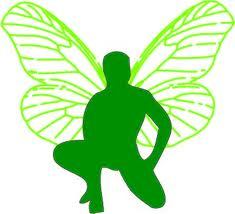 "Free Your Mind and the Rest Will
Follow." "Free Your Mind and the Rest Will
Follow."
This transformation and
name-changing/identity-changing can also be a transformation of the
world—from one of duality, conflict and competition to one of oneness,
harmony and cooperation.
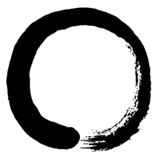
These are "new-age," 21st century values that
everybody is coming to honor. And they transcend the
hetero-homo dichotomy that Hay was emphasizing back in the 50s.
What Hay might really have been
referring to is the difference in
relationship style between men and women. It's women who relate
subject-to-subject, sister-to-sister. It's men who relate to others as
sex-objects, competitors or objects of derision. Because homosexual men
likely or potentially have more "womanliness," they are able to also
relate sister-to-sister and lover-to-lover.
The implication of Hay's valorization of subject-SUBJECT relating is
that all gay, queer and gender variant people have to make an effort to
understand each other and not treat each other as objects. Men
especially must be vigilant about not treating other men as
"sex-objects."
Into an Alternate Reality
Heroes bravely go where no one has gone
before. Being brave and doing what must be done, when it must be done,
is what the hero has come for.
The hero enters a new reality with a new name. He or she or ze
discovers a new history. It turns out there has been a whole gay
history
that has been hidden. And a whole world of gay/lesbian/trans* reality.
Gay/queer culture.
And a whole world of gay literature and mythology.
Sex and gender variant people have created new worlds in fiction and
fantasy, sci-fi especially.
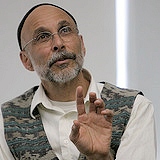 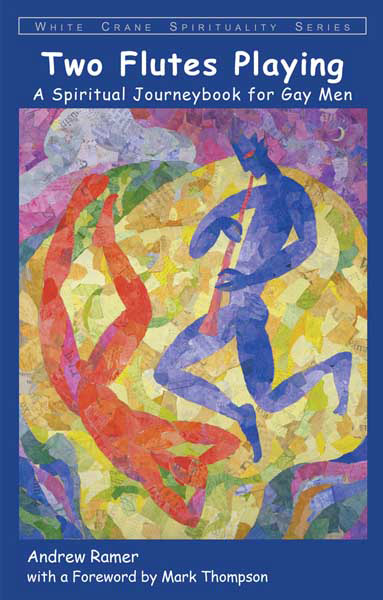
Andrew Ramer, in particular, has devised a
whole "pre-history" that is part fiction, part traditional storytelling
and part mystical revelation in such books as Two Flutes Playing and
Queering the Text.
The Task: Telling the Truth about Sex
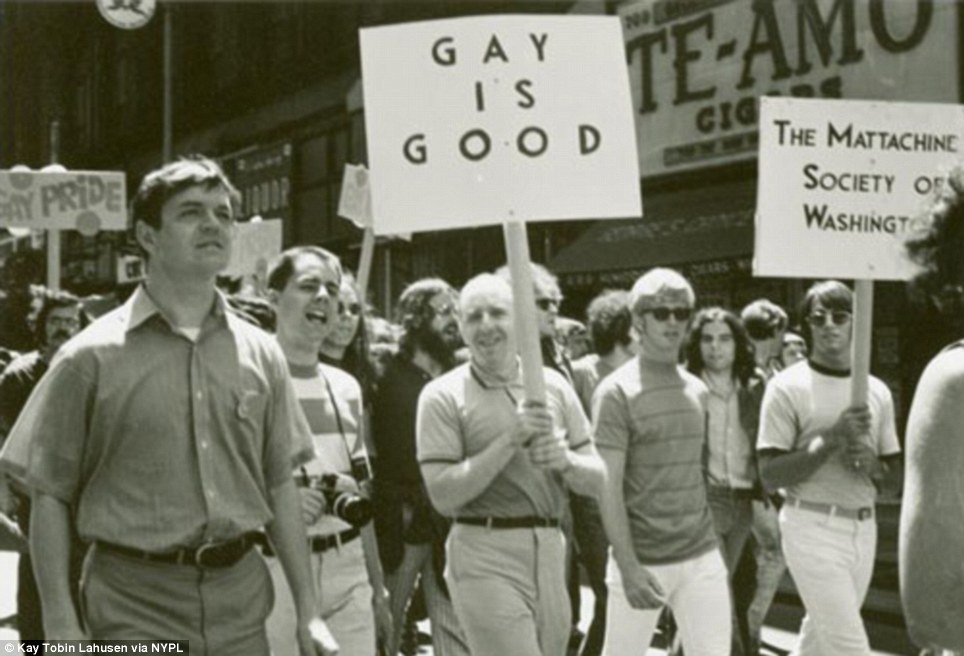
The Sexual Revolution, of course, was much bigger than just Gay Lib.
And it was as much about achieving psychological health and personal
wholeness as it was about having sex. GLBT people were generally
perceived as warriors at the barricades. And telling the truth was one
of the ways we fought.
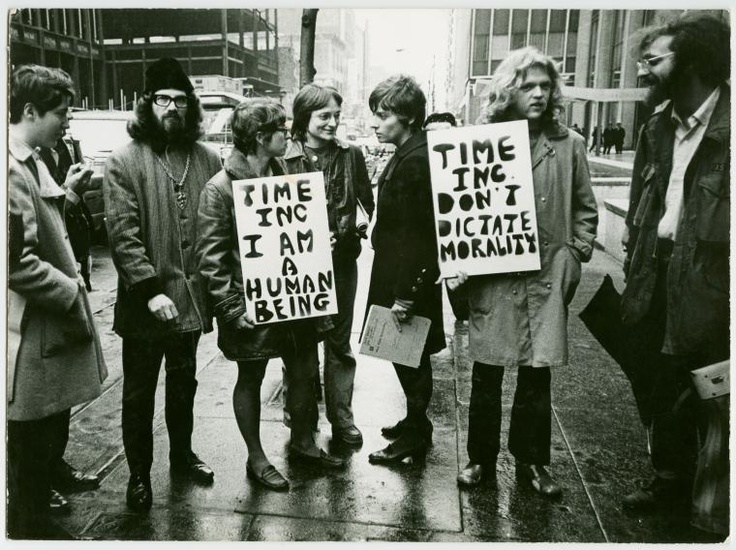
Authenticity was the key value. Being honest about sex and being able
to use words about sex is a
hallmark of liberation. And it transforms how sex is experienced.
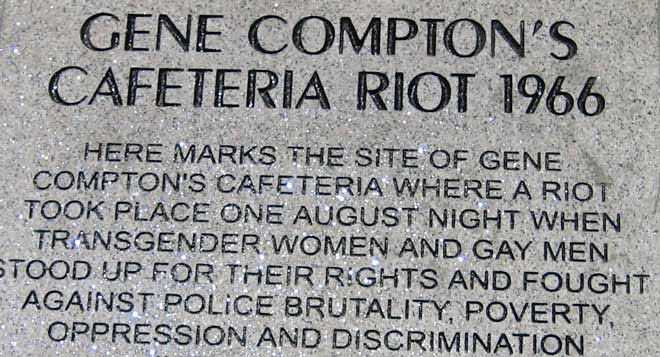
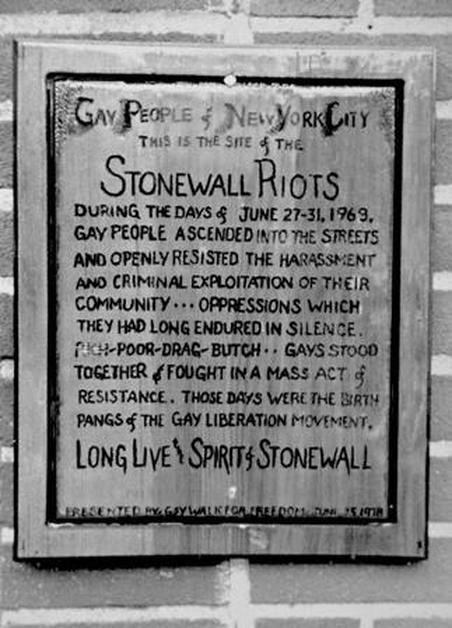
The Road of Trials
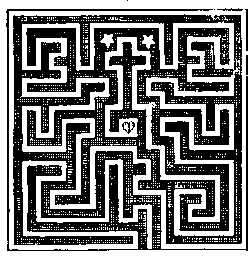
Religion, mythology, spirituality—all deal with suffering
and misfortune. Scott Meredith's protagonist finds the situation progressively
increases in severity, matters become darker
and more urgent, until finally he or she resolves the crisis through
the heroic act. Resolving the crisis may mean enduring ordeal, being
tested, even allowing oneself to be a victim, but now with transformed
vision.
For the individual, the road of trials may be persecution or
humiliation, losing a job, losing a lover, having to face personal
misfortune and bad luck, maybe accident or disease.
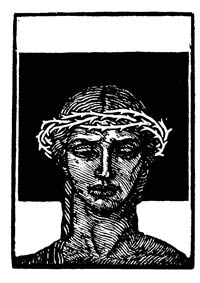
"Hardships often prepare ordinary people for an extraordinary
destiny."
—C.S. Lewis
For the gay community as a whole, this road of trials
has certainly
meant AIDS with all its layers, and grieving over lost friends and
lovers. By participating and demanding and working for change, the
terror of the early days is being resolved.
The Road of Trials—in an awful pun—might also be the Road of Hearings
and Court Cases and political zaps and Candidates' Forums, and
community organizing that was required for change to happen.
Reconciliation, Apotheosis and Sacred Marriage
Successful passage through the
road of trials brings
reward. In myths the hero often gets the damsel he has been sent to
save or is rewarded by the King with the hand of his daughter in
marriage. But the hero may also die in the process and be taken into
heaven and made a god. Or, less dramatically, he may simply come home
and find himself welcomed by the parents who'd rejected him.

It is telling that in the actual history of "Gay Lib," the major sign
of success has been Same-Sex
Marriage.
There are so many factors that have entered into the amazing changes in
the last ten years. There's no one thing—though perhaps everybody
coming out and making themselves visible is what changed public
perception of homosexuality.
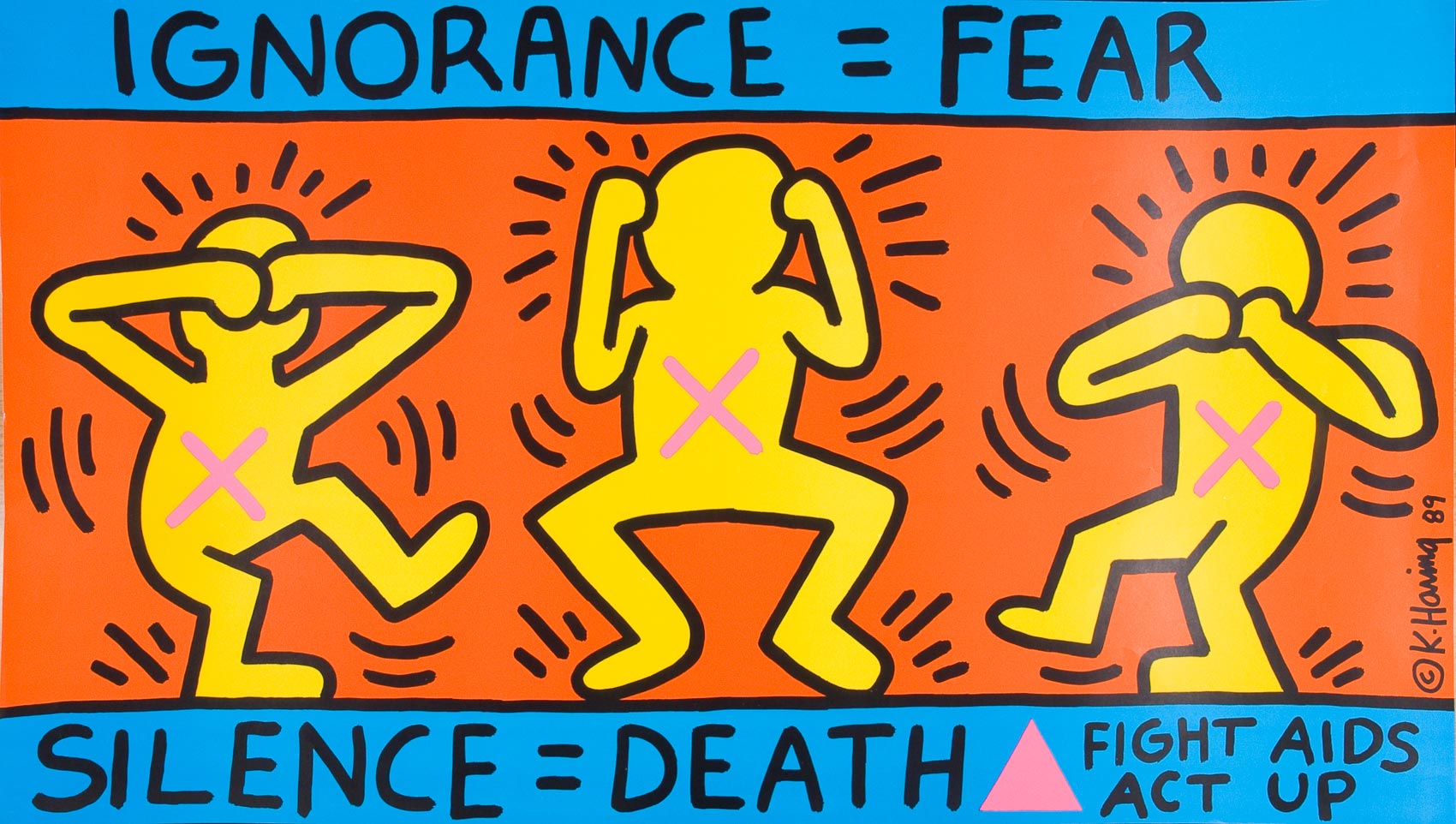 AIDS
forced that visiblity—with movie hero
Rock Hudson as the archetypal example. AIDS
forced that visiblity—with movie hero
Rock Hudson as the archetypal example.
And AIDS elicited compassion and respect.
For many of the public who didn't really understand what homosexuality
was at all, the fact that people stayed gay even in the face of AIDS
was evidence that it wasn't just a choice those people made just so
they
could have more sex.
AIDS and the activism of caregiving it produced
made "homosexuals" into three-dimensional, real people.
Apotheosis in the Erotic God
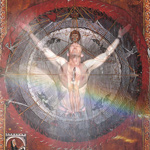
The stage of "Apotheosis"
—becoming God—
is the hero's discovery that he or she IS God or, in reverse, that God
is he or she. Certainly, one of the boons that gay culture has granted
us is the discovery of the Erotic God.
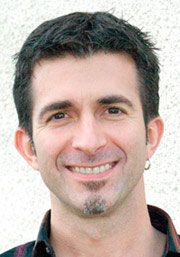
Spiritual teacher, retreat master, and now adventure guide, our friend
Hunter Flournoy speaks of finding the divine in our own bodies. Using
the words of mystical Christianity, he says "The erotic body of Christ…
is a visceral experience of God through our bodies, individually and
collectively, modeled by Jesus, lived by the erotic Christian mystics
throughout the ages, and felt directly in our own experience."
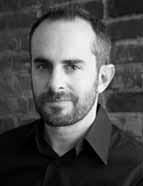
Jewish gay
spiritual writer Jay Michaelson has a book titled God
in Your Body: Kabbalah, Mindfulness, and Embodied Spiritual Practice
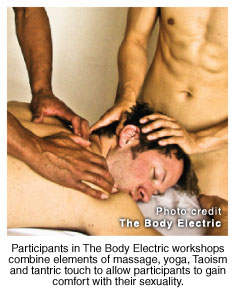
The Body Electric and the various spin-offs in modern day gay culture
teach how to transform the experience of sexual arousal into something
much more mystical. The boon is the revelation that: Sexuality and
Spirituality are not opposed. Indeed, they belong together, each
enhancing the other.
"Gay
consciousness," attraction to sames, is a clue to oneness
and harmony. "Non-duality," "non-binary thinking," seeing beyond
polarities, seeing shades of gray instead of black and white, being
compassionate, not law-enforcing—these can be hallmarks of the
consciousness created by same-sex attraction. This is, I propose, the
so-called "gay sensibility" in literature and art.

Such nondual
awareness transcends the distinctions between right and wrong, good and
bad, desirable and repulsive, self and other, God and
the world.
"Non-dual" means not eating the apple, so not
being thrown out of the Garden of Eden.
This is a popular idea in new religious consciousness. Maybe it's the
future of religion. Gay/queer people can find it in our own experience
of love.
God and the world, as separate
and distinct, relate as complementary opposites. Beautiful together,
like male and female, but different. God is an other. God is out there.
God and the world, as non-dual, relate as sames to sames. "God"
experiences the world as us experiencing the world. God is in our
bodies.
As you are reaching the
point of ejaculatory
inevitability, think "Here comes God." And as you're coming, think "May
all beings be happy. May all beings be free."
Two Spirits
Above is an
alchemical image of the union of male and female in one
physical body. It's a heterosexual image in Alchemy as the sacred union
between man and woman in coitus, but it also captures one of the ideas
in modern LGBTQ spiritual thinking, that of the Two-Spirit.
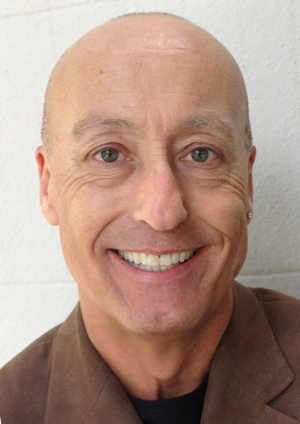
This is a
notion in shamanic religions worldwide and, of particular interest to
us in modern America, in Native American cultures on this continent
long before the Europeans came. Shamans discover they possess the
spirit of Man and the spirit of Woman. And are blessed with powers of
healing and of vision.
Will Roscoe is one of the champions of
Native cultures and shamanistic
religions—and one of Harry Hay & John Burnside's caretakers at the
end of their lives. His book The Zuni Man-Woman
was about We-Wha, who visited Washington DC, met Presdient Grover
Cleveland and became known in America in the 1880s. The Zuni term was
Lhamana.
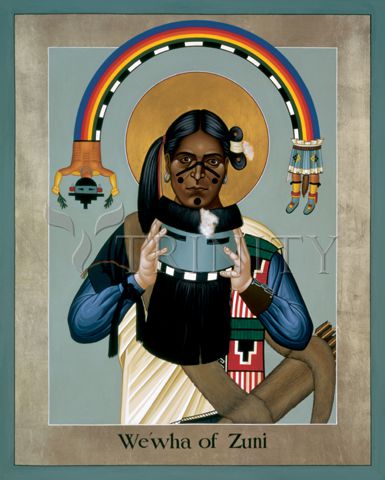
Icon of We Wha as a saint by Franciscan Bro Robert
Lentz.
A novel about a
fictional Navajo Two-Spirit Person by Walter L.
Williams & Toby Johnson
The story invokes Navajo spiritual wisdom to speak of "ripples in the
spirit field" which are the consequences of our
lives that expand out beyond individuals into the
collective world.
This is a mythic theme that particularly
resonates with the very
current awareness of Transgender issues and trans* identities.
Two-Spirit Persons have "spiritual powers."
It is not without meaning that Harris Glenn Milstead became Divine.
Herein is a pun and a clue.
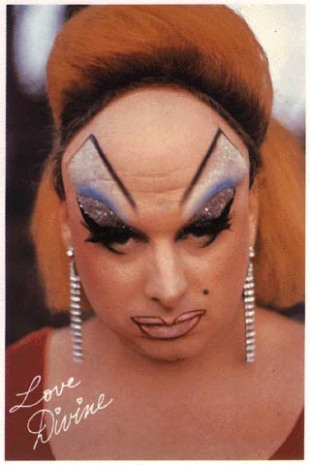
The Return, Bearing Boons
The hero is transformed by his or
her experience and
returns to the place where he started changed. He brings gifts, perhaps
a treasure or a healing elixir or new wisdom. He has powers.
Superheroes
Jeffrey J. Kripal, a
professor of comparative religion at Rice University, is
a non-gay man but with
great awareness and interest in how homosexuality and gender variance
seems to interface with spiritual and mystical experience.
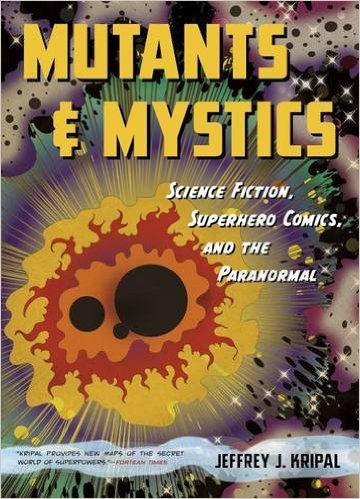
Kripal writes about comic book heroes and movie
Superheroes as modern day myths
about the "powers" of consciousness in Mutants
and Mystics: Science Fiction, Superhero Comics, and the Paranormal.
Read more about
Jeffrey Kripal and Superheroes
In sci-fi, cosmology and metaphysics
can be mythologized into stories—and into movies with special effects.
The
superhero powers in myth are really reminders of our "power" to
create and recreate the world of our experience. The trick is to
recognize your "power," intend the world to be the way it should be,
but resist nothing, embrace everything, joyfully participate in the
sorrows of the world, play the game, contribute
to the process and live in such a loving
way that your own life works and people love you and you love them and
events unfold smoothly around you. Put out good vibes.
The Boon: Modern Hero Discovers the Nature of Truth
Spiritual, not necessarily
religious
Not necessarily anti-religious
Campbell says the modern
hero—that is, the one who faces
the great mysteries and conundrums of life and seeks to help humanity
AND who knows he is doing it because he understands what being a hero
is—brings back the wisdom of seeing through the myths and beliefs and
prejudices that hold the old world together.
He or she has left the
village compound and gone up into a higher reality and seen how much
bigger life is. He returns with the news that there are wonders up
ahead, that the road is safe, that there's a passage.
What
is evolving in consciousness and culture today is the awareness of that
these legends and myths—and religious doctrines—are really about the
human mind and how the mind generates the world of
experience. The modern hero has to discover his own "oneness" with the
creative power that had been mythologized as "God." This isn't
necessarily to deny God but to say that we can relate to God from
within rather that through an anthropomorphization projected outward.
It's mystical, not objective.
And because we can see all the cultures
and societies and
religions and mythological traditions around the world, we see what
they
are.
We can become aware of the nature of religion from outside. In
fact, we have to. What we see is that for any one religion to be true,
all must be true, and that means religious truth is different from
scientific, historical and factual truth. That is an incredibly
liberating discovery. We can "create our own religions." And we do.
The truth in the religions is metaphorical, more than historical. The
truth of a religious doctrine is measured in the positive,
transformational power it holds for believers, not facts about events
in the past or metaphysical structures or what's written in Scriptures
and ancient texts.

All descriptions
are true, but none of
them is right. None is complete.
All myths are true, but for that reason you have to rise to a higher
perspective from which that can be so.
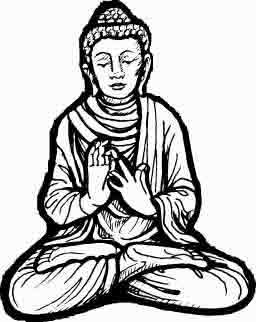
Campbell’s wonderful retort to the accusation he must be an atheist
was:
“Anyone who believes in as
many gods as I do can hardly be called
an atheist.”
But that’s an entirely different kind of not being an
atheist. Indeed, such an overview includes being atheist too—or nontheist
to use the Buddhistic term for transcending literal belief in the myths.
Modern Gay Hero Discovers This for the World
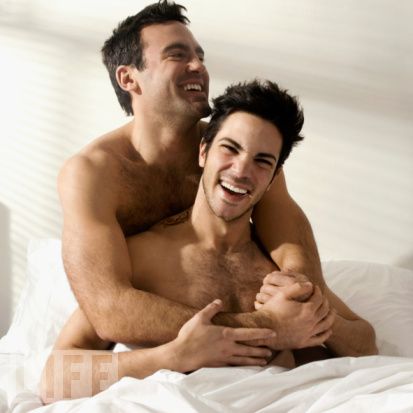
And
this insight is one that saves sexual
and gender variant people from the past. Because we've had to gain a
perspective on ourselves to understand our variance, we are naturals
for this perspective on religion and popular belief.
We are free from
literal belief, "the Old Law." We can find our sexuality is good and is
part of how we experience
"God" and the meaning of our lives.

This is the boon
the individual gay hero brings home to him or herself.
A kind of
enlightenment. A Spirit Vision
And because sexual and gender issues
raise the consciousness of the
whole society, our issues force religion to grow and evolve. Everybody
in America now gets exposed to the contradiction between enforcing one
ancient biblical taboo against homosexual sex while ignoring all the
myriad of other outdated taboos in the same text.
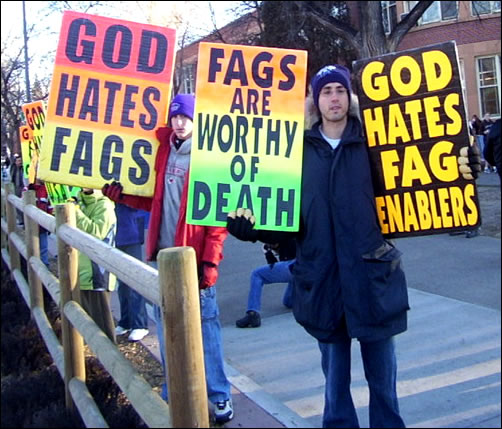
Everybody has to notice how crazy it sounds to blame hurricanes on
homosexuals and how contradictory "God Hates Fags" is to Jesus's
teaching about loving your
neighbor, treating others as you would have others treat you AND to the
American founding tenet that all… are created equal and endowed with
the right to pursue happiness.
Gay rights, trans* rights, women's
rights—these all challenge religion's legitimacy. And the religions
have to adapt and evolve and become more inclusive. That's good for
them.
This is a prime example of what Christian de la Huerta called Catalytic
Transformers.
In fact, by our presence as sex and gender role nonconformists, we've
opened the possibility for everybody to be more free and authentic.
"Straight men" don't have to fear appearing gay. It's amazing how
accepting modern society is.
Gay activism has been particularly
successful within churches. Most
church-going people really are well-motivated and churches do a lot of
good. Dealing with being "affirming congregations" has opened people's
eyes and made them better Christians, Jews, Buddhists, etc., etc…
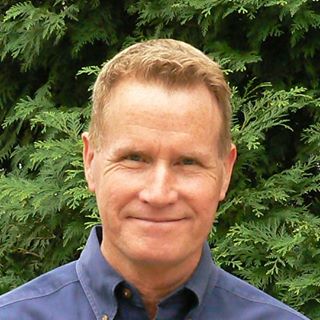 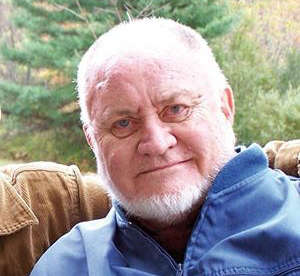
Atlantan Chris Glaser is an example. And he is one of so, so many
religious activists who've made their personal hero journey, a boon for
the whole community. John J McNeill another.
Our gay/queer/gender variant task is to reframe how we understand our
sexuality. Our "spiritual destiny" is the set of ideas and beliefs that
induce that transformation—"straw into gold."
Transforming the Meaning of Gay/Queer
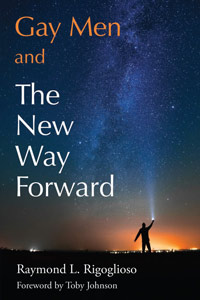
 Raymond
Rigoglioso is a social worker,
coach, mentor, "spiritual teacher" now based in Provincetown. His book Gay
Men and the New Way Forward
is about the "14 Distinctive Gay Male Gifts," i.e., personality traits
and virtues, that gay men self-report in his Gay Men of Wisdom groups.
The book is about how gay men can change our self-concepts and
attitudes about life and about homosexuality to be more true and more
life-positive and affirmative. (I have a Foreword about how
self-fulfilling prophecy transforms the world—"Revolution through
Consciousness-change.") Raymond
Rigoglioso is a social worker,
coach, mentor, "spiritual teacher" now based in Provincetown. His book Gay
Men and the New Way Forward
is about the "14 Distinctive Gay Male Gifts," i.e., personality traits
and virtues, that gay men self-report in his Gay Men of Wisdom groups.
The book is about how gay men can change our self-concepts and
attitudes about life and about homosexuality to be more true and more
life-positive and affirmative. (I have a Foreword about how
self-fulfilling prophecy transforms the world—"Revolution through
Consciousness-change.")
This list is descriptive—in the sense that it's based in
self-reporting. And it is prescriptive—in the sense that's it describes
how gay men "ought" to be.
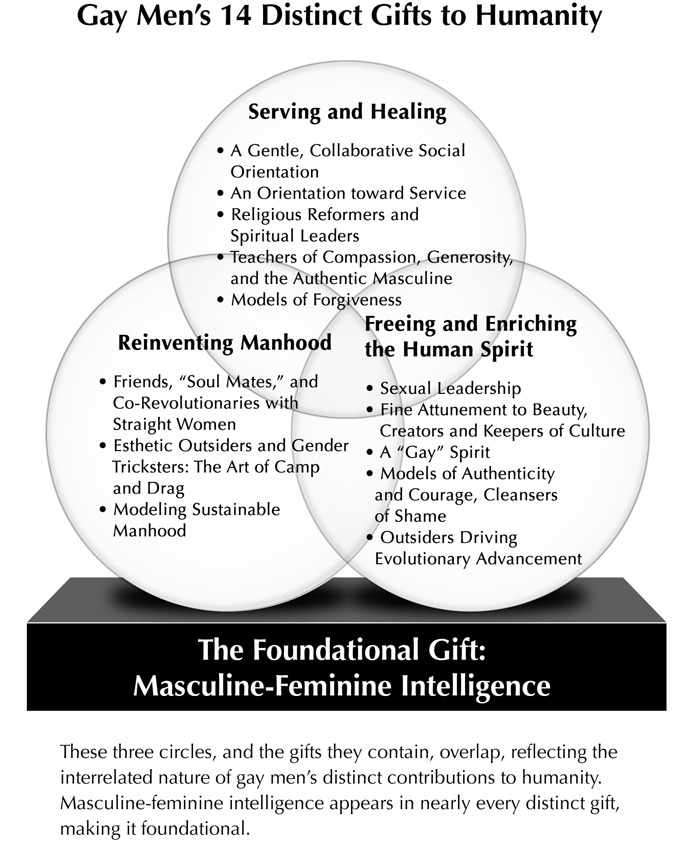
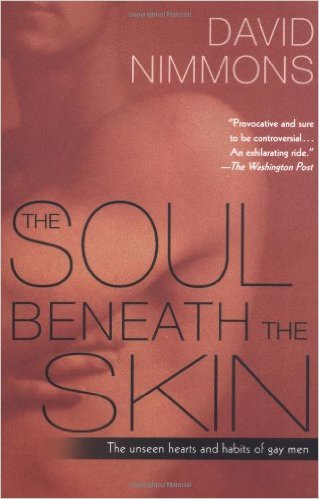
This same effort at transforming how we understand ourselves appears in
David Nimmons' The Soul Beneath the Skin. Nimmons based his
reports on police reports and sociological data.
Slaying the Dragon
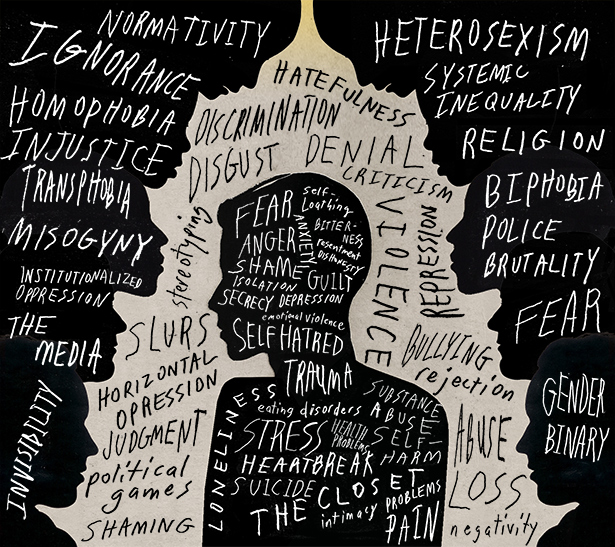
The demon the gay hero must conquer is
homophobia. Internalized homophobia causes us to hate ourselves
as homosexuals and to discount our powers.
Externalized homophobia—though you don't hear that
expression—is what the Jungians call The Shadow; it's homosexuals
disapproving and "hating" other homosexuals and gender variant people.
What we "hate" and are ashamed of in ourselves, we project onto others
and hate it in them and blame them, not ourselves, for it.

In the book Shift Your Mood, pychotherapist
and Mindfulness teacher, Rik Isensee
writes of the Golden Shadow,
meaning that we can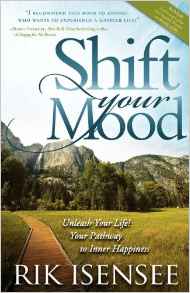 reverse the
Shadow. We can recognize the good
qualities in others as qualities
of ourselves because we can see them and recognize our own goodness
(and
reason not to hate ourselves) AND we can project our own goodness onto
others, intentionally giving others the "benefit of the
doubt" that we would hope others would accord to us, not making other
people wrong, and seeing in them
the good qualities we want in the world. We can see the "God" in other
people. reverse the
Shadow. We can recognize the good
qualities in others as qualities
of ourselves because we can see them and recognize our own goodness
(and
reason not to hate ourselves) AND we can project our own goodness onto
others, intentionally giving others the "benefit of the
doubt" that we would hope others would accord to us, not making other
people wrong, and seeing in them
the good qualities we want in the world. We can see the "God" in other
people.
Namaste
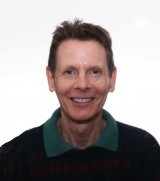 "As your stories of who you think you
are drop away [through mindfulness practice], you discover
that you are awareness itself, you are Christ consciousness, you are a
realized buddha, you are Brahman, Atman, Quan Yin, Mary, the Tao,
nature, or the Great Spirit—Tat Tvam Asi, Thou art That—and so
is everyone else. "As your stories of who you think you
are drop away [through mindfulness practice], you discover
that you are awareness itself, you are Christ consciousness, you are a
realized buddha, you are Brahman, Atman, Quan Yin, Mary, the Tao,
nature, or the Great Spirit—Tat Tvam Asi, Thou art That—and so
is everyone else.
"All the various "names of God" can be understood as
metaphors or expressions of consciousness, wholeness, and being. They
come from many different traditions, and serve as an
approximation of that ineffable quality, "a finger pointing toward the
moon," humanity's various attempts at expressing the essence of what
you actually are.
"Ah yes, this is who I am, in this moment. I am that
wholeness, stillness, or even a fireball of energy. This is
home, the unconditioned, the inner sanctuary, the freedom to be as I
am. And at the same time, to see clearly that separation is an
illusion: we are all connected in a vast web of life and buzzing
energetic motion. I can learn to trust in my own responsiveness, through
a compassionate acknowledgment of others.
"You are the source of Love. You are the source of
Wisdom.
"You already are what you are seeking!"
Rik Isensee, Shift Your Mood

The goal of all
spiritualities is to experience
being in heaven now.

Here's the cover art from Gay Perspective
created by Peter Grahame, showing a gay man in the classic pose of the
Bodhisattva Avalokiteshvara/Quan Yin.
Avalokiteshvara—the
world savior in Mahayana Buddhism—this
cute, lovable, androgynous young man who is loved by everybody who
knows him
and
who sits out in the garden barechested in a relaxed half-lotus posture,
wearing women's jewelry—has "saved the world" by taking on everybody's
incarnation for them so they could go on into nirvana. So ALL of us are
incarnations of the bodhisattva, so there isn't even a dualism of "I"
and "other." The spirituality of the Bodhisattva is called "The Way of
Joyful Participation in the Sorrows of the World."
The
three wonders of the Bodhisattva
1) Ze is both male and female
demonstrating the best qualities of each sex and gender;
2) to the Bodhisattva, there is no distinction between time and
eternity, between samsara and nirvana: this, our present life, IS
heaven; and
3)
here's the kicker—the
Third Wonder is that the first two wonders are the same. Seeing beyond
gender roles is seeing heaven now.
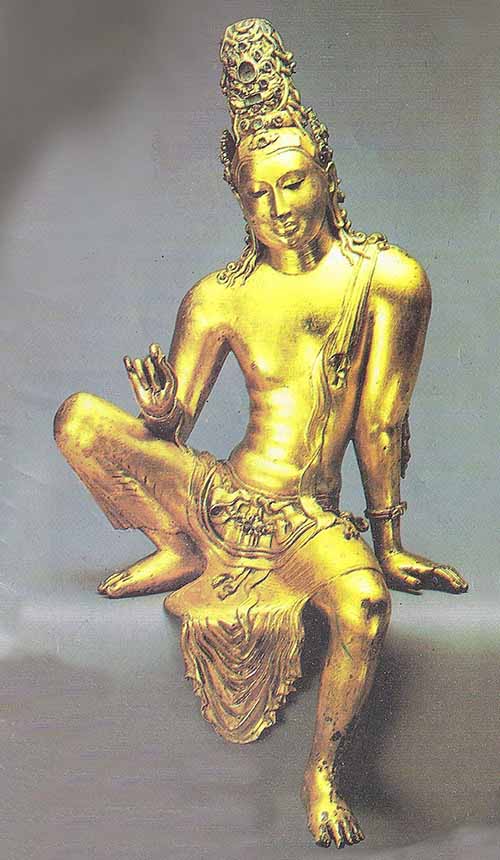
Joseph Campbell said, "People ask
me:
'Do you have optimism about the
world, about how terrible it is?' And I say, 'It's great just the
way it is.'"
“If you follow your bliss,” he said, "you put yourself on a kind of
track that has been there all the while, waiting for you, and the life
that you ought to be living is the one you are living… Follow your
bliss and don’t be afraid and doors will open where you didn't know
there were going to be doors.”
“People say that what we’re all seeking is a meaning for life. I don’t
think that’s what we’re really seeking. I think that what we’re seeking
is an experience of being alive, so that our life experiences on the
purely physical plane will have resonances with our own innermost being
and reality, so that we actually feel the rapture of being alive.”
"The goal of the hero trip down to the jewel point is to find those
levels in the psyche that open, open, open, and finally open to the
mystery of your Self being Buddha consciousness or the Christ.
That's the journey."
|
![]()

